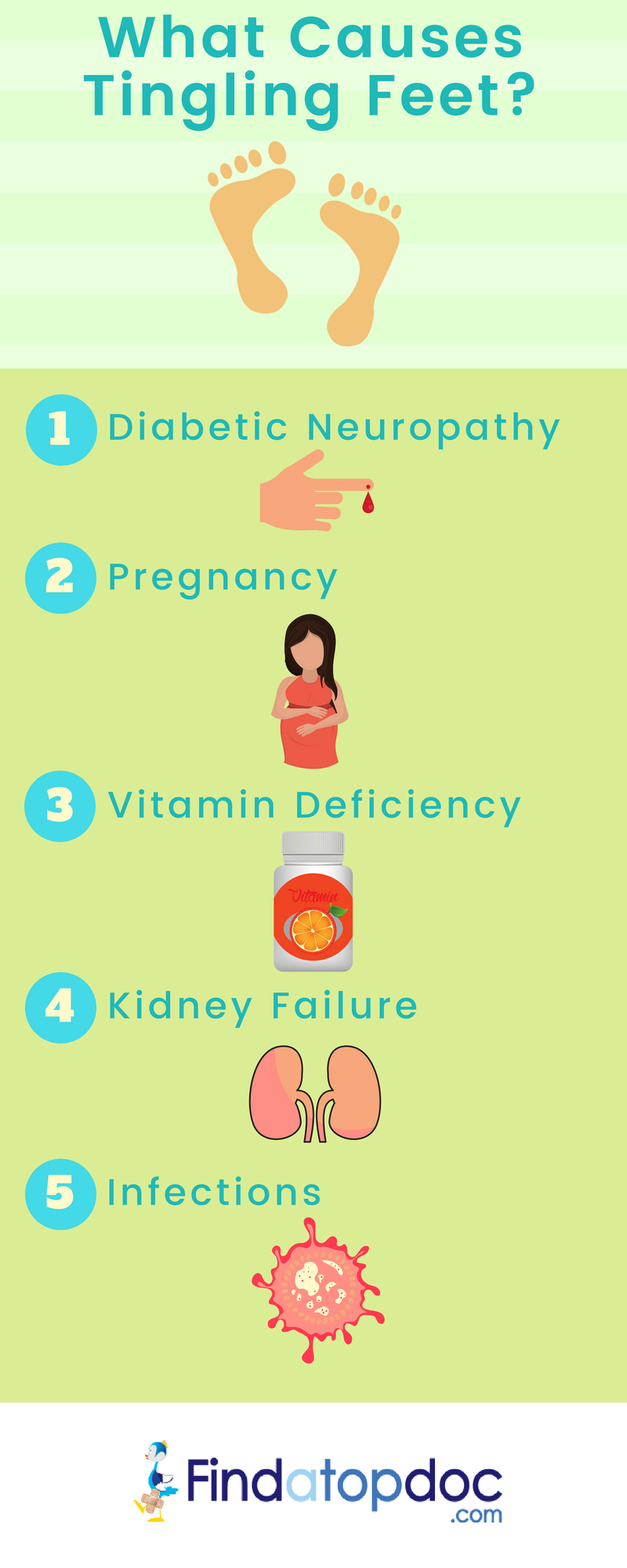
Tingling in the feet is a very common concern for many people. Many people experience a “pins and needles” sensation in their feet at some point. Often the feet may also feel numb and painful. This isn’t usually a reason for concern. Sometimes it may be caused by pressure on the nerves when you’ve been in one position for too long. The feeling should go away when you move. However, tingling in the feet may be persistent. If the “pins and needles” feeling continues for a long period of time or is accompanied by some sort of pain, you should see your doctor. They can help you determine the cause.
Possible causes of tingling
A lot of causes of tingling sensations are linked to a condition called peripheral neuropathy. This is a type of nerve damage that leads to tingling and numbness in the hands and feet. Here are some possible causes:
1. Pinched nerve
A person may experience tingling in their feet due to a pinched nerve in the back. This may have happened as a result of injury or swelling.
Other symptoms of a pinched nerve include pain and limited movement. Treatment for a pinched nerve can involve:
- rest
- medication
- physical therapy
2. Diabetes
Diabetes is one of the most common causes of peripheral neuropathy, accounting for about 30% of cases. In diabetic neuropathy, tingling and other symptoms often first develop in both feet and go up the legs, followed by tingling and other symptoms. About two-thirds of people with diabetes have mild to severe forms of nerve damage. In many cases, these symptoms are the first signs of diabetes.
3. Anxiety
People who suffer from anxiety can have some symptoms that vary in frequency, duration, and severity. But many people experience tingling, numbness or pain in the extremities as a result of chronic anxiety or stress that can significantly worsen when trying to go to sleep or during a panic attack.
4. Tarsal Tunnel Syndrome
Damage to the tibial nerve. Nerve provides movement and sensation to the calf and foot.
5. Vitamin Deficiency
Low levels of B12, B6, B1, and Vitamin E can lead to problems with nerves causing tingling in feet and legs.
When to see a doctor
If you experience tingling in your feet that doesn’t go away, gets worse, is accompanied by pain, or keeps you from walking well, you should definitely see a doctor. You may be at risk for falls if you cannot feel your feet properly. In case you experience tingling in your feet accompanied by a severe headache, tingling in your face, or sudden weakness, you should get immediate medical help.
Treatments for Tingling Hands and Feet
Successful treatment depends on an accurate diagnosis and treatment of the underlying cause of the tingling. As long as the peripheral nerve cells have not been killed, they have the ability to regenerate again. Although no treatments are available for inherited types of peripheral neuropathy, many of the acquired types can be improved with the right treatment. For instance, good blood sugar control in diabetes can slow the progression of diabetic neuropathy; vitamin supplementation can correct peripheral neuropathy in people with vitamin deficiencies.
People who experience tingling in their feet or hands regularly should speak to their doctor sooner rather than later. They should also tell their doctor about any related symptoms. The doctor can help reach a diagnosis and recommend appropriate treatment.